ISIS leader dead after Biden orders special forces raid
The leader of Islamic terrorist organisation ISIS has blown himself up, and at least a dozen others, during a raid by US counter-terrorism forces in Syria.
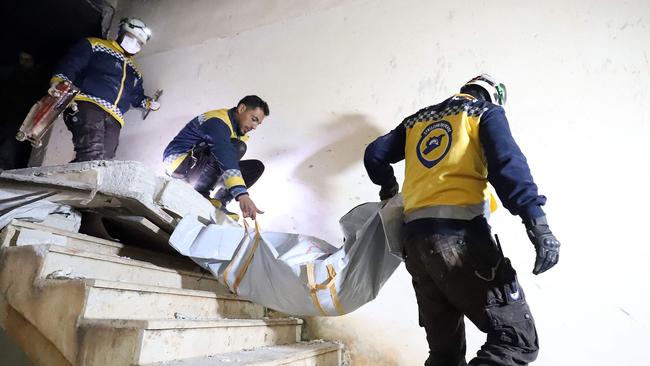
The leader of Islamic terrorist organisation ISIS has blown himself up, and at least a dozen others, during a night-time raid by US counter-terrorism forces in Syria that President Biden has hailed as a warning to other terrorists.
Joe Biden said he ordered the special forces raid near the Turkish border in Syria that killed Abu Ibrahim al-Hashimi al-Qurayshi, who had a $US10 million bounty on his head, early Thursday EST.
“In a final act of desperate cowardice, with no regard to the lives of his own family or others in the building, he chose to blow himself up - not just the vest, but to blow up that third floor - rather than face justice for the crimes he committed,” Mr Biden said, speaking at the White House.
“Last night’s operation took a major terrorist leader off the battlefield, and it sent a strong message to terrorists around the world: We will come after you and find you”.
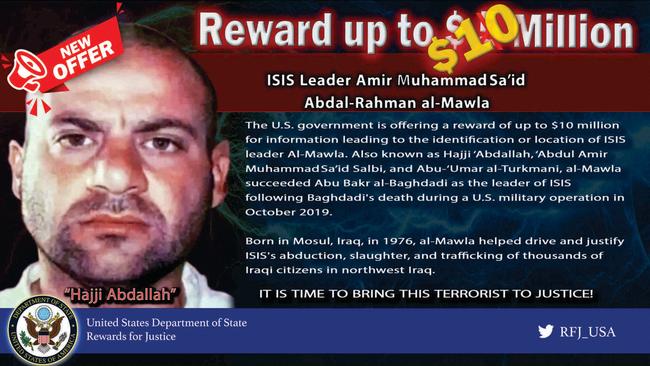
Defence secretary Lloyd Austin said in a statement that Al-Qurayshi, also known as Hajii Abdullah, “provided near-constant operational guidance to ISIS fighters, to include the prison break and attack at Hasakah and the slaughter of Yazidis in Iraq”.
Al-Qurayshi killed four members of his own family, his wife and three children, in the explosion so strong bodies were blown out of the house.
Emergency rescue workers who reached the scene minutes after the American forces left said they recovered the bodies of 13 people, including six children and four women, from the house and surrounding area, according to the Syrian civil-defense group the White Helmets.
The mission, termed a success by White House officials, eliminated a top terrorist leader in the Middle East the US said had posed a threat to the US, and appears to have handed the US a foreign-policy success amid a vexing crisis in Ukraine and domestic problems back home in the US.

“He was a very hands-on leader, involved in many day to day operations of ISIS and certainly keenly interested in restoring the lethality that ISIS had once enjoyed,” the Pentagon spokesman John Kirby said in a press briefing. “This is a man we should all be happy is no longer walking on the face of the earth”.
The mission included around two dozen American commandos Apache gunships, air strikes and drones and lasted around two hours, according to US officials and accounts on social media.
Soon after special operators landed and approached the multistorey building, Qurayshi, who lived on the third floor with his family, detonated an explosive, killing himself and his family, US officials said.
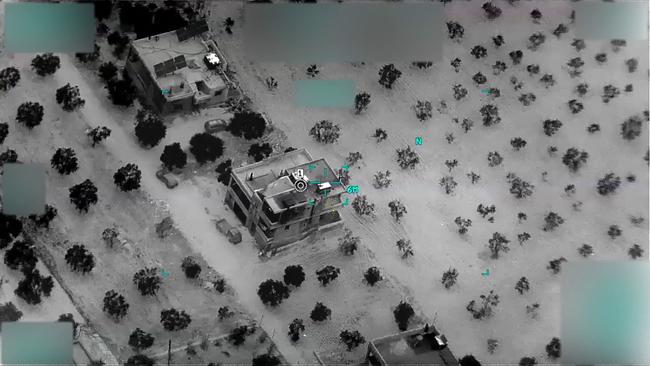
“[Our forces] called out to everyone to leave peacefully, quietly. And for him to surrender himself,” Mr Kirby said, adding that US forces were able to evacuate 10 civilians from the building, mostly children, before the explosion.
Qurayshi’s deputy, who lived on the second floor, barricaded himself and his wife and engaged American forces in a firefight attempting to fend off an attack, but was also killed.
No Americans were injured and no-one was taken into custody.
“Knowing that this terrorist had chosen to surround himself with families, including children, we made a choice to pursue a special forces raid at a much greater risk to our own people rather than targeting him with an airstrike. We made this choice to minimize civilian casualties,” Joe Biden said.
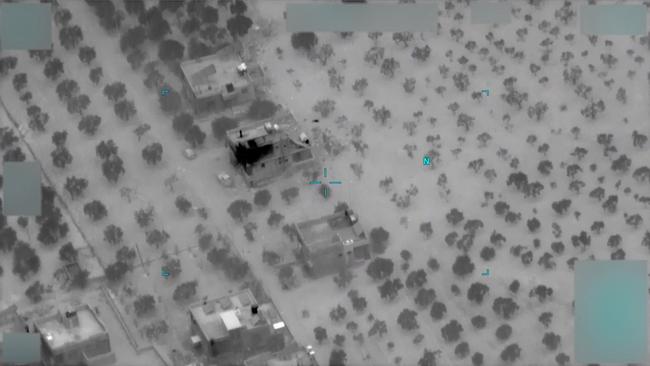
The US military endured significant criticism for accidentally killed 10 innocent Afghans, including children, in a drone strike on in August last year, in the weeks immediately after the US withdrawal.
Al-Qurayshi had been leader of ISIS for around 26 months, and had kept a low profile, never issuing the kind of proclamations or video clips that his predecessor Abu Bakr al-Baghdadi, who similarly killed himself in 2019 as US forces approached, had done.
ISIS, which has recently sought to destabilise the new Taliban government is Afghanistan, is an Islamic terrorist organisation that rose to global prominence during the Iraq War in the 2010s for its attacks on governments it deemed to be co-operating with US.
It established a so-called caliphate throughout Syria and Iraq that collapsed in 2019, but ISIS continues to cause chaos across a region where governments have only tenuous control.
The death of its most recent leader has come days after a battle between US-backed Kurdish force in north-eastern Syria and ISIS over control of a prison.
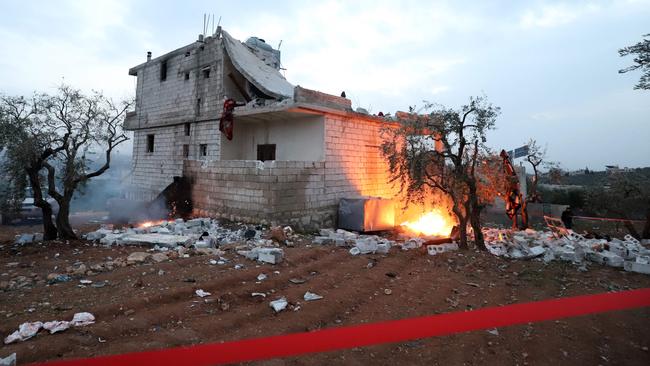




To join the conversation, please log in. Don't have an account? Register
Join the conversation, you are commenting as Logout